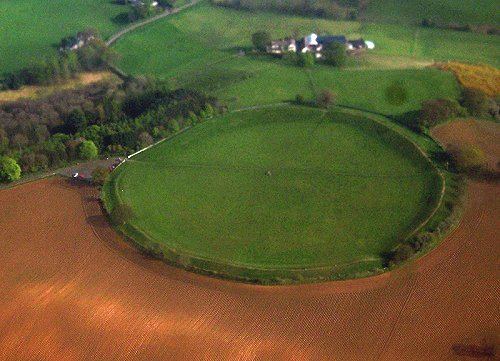
Ballynahatty, county Down
J 327 677 - Sheet 15
Nearest city: Belfast

This view was taken from an aircraft coming in to land at
Belfast City (Harbour) airport in 2005.
Only 6.5 km S of the centre of Belfast , "The Giant's Ring" is an
impressive and atmospheric monument,
consisting of a circular bank some 3.5 metres high enclosing a large space some
180 metres in diameter and 2.8 hectares in area.
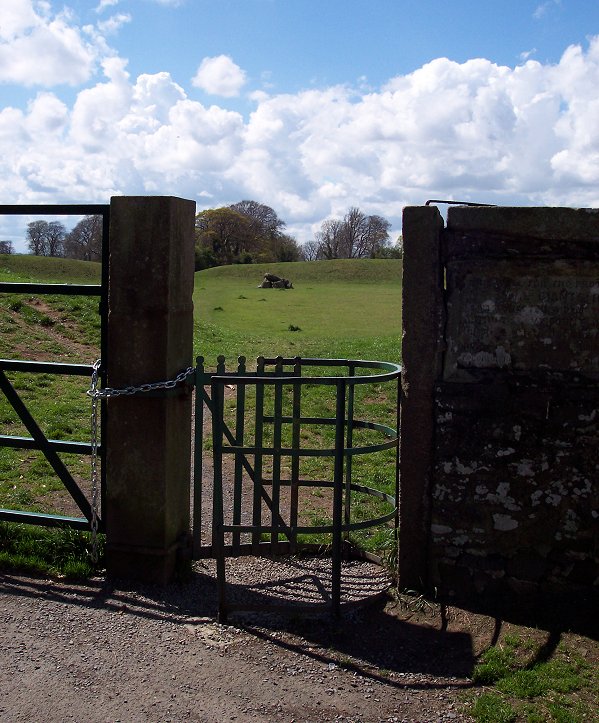
E of the centre of the enclosure is a small passage-tomb whose vestigial passage
faces W,
and which may have been erected (with a tumulus) a little before or a little
after the henge.
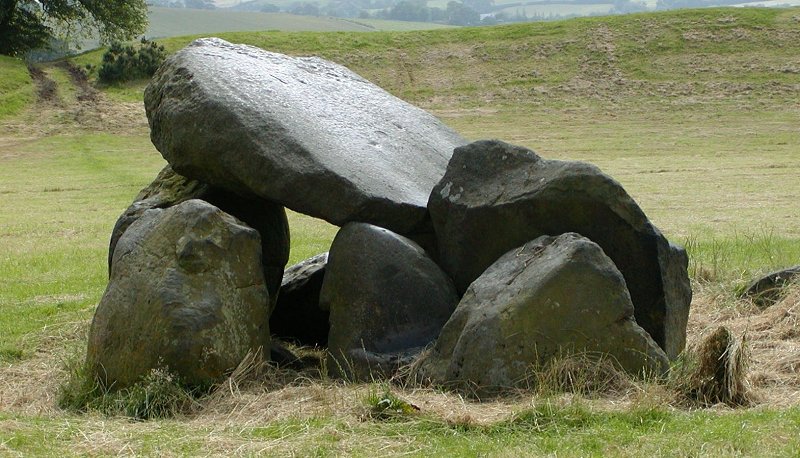
A painting of the tomb by Tommy
Barr.
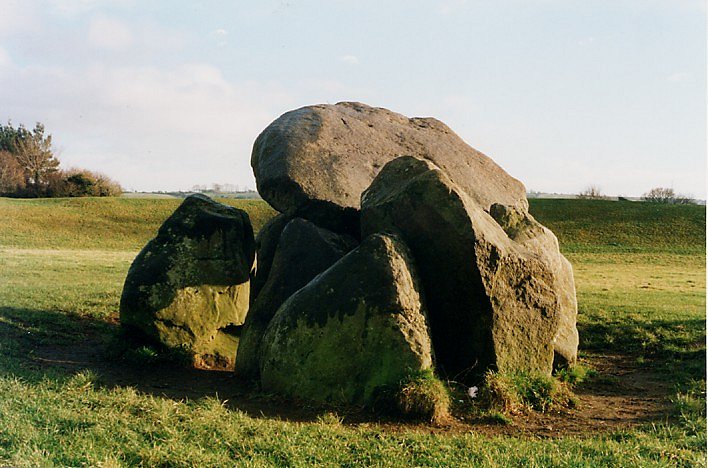
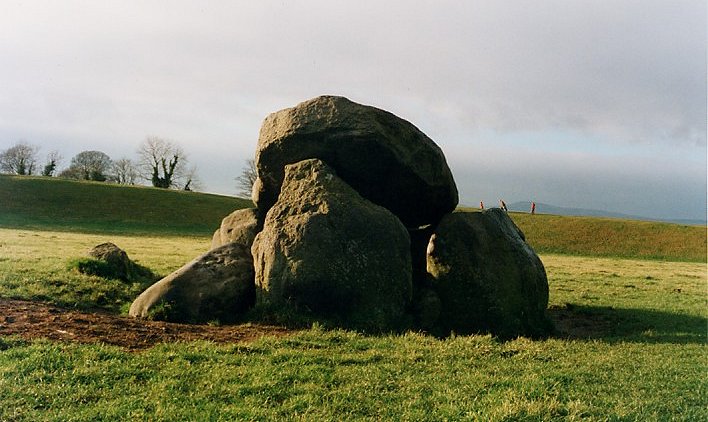
An old grainy picture from 1970.
The interior.
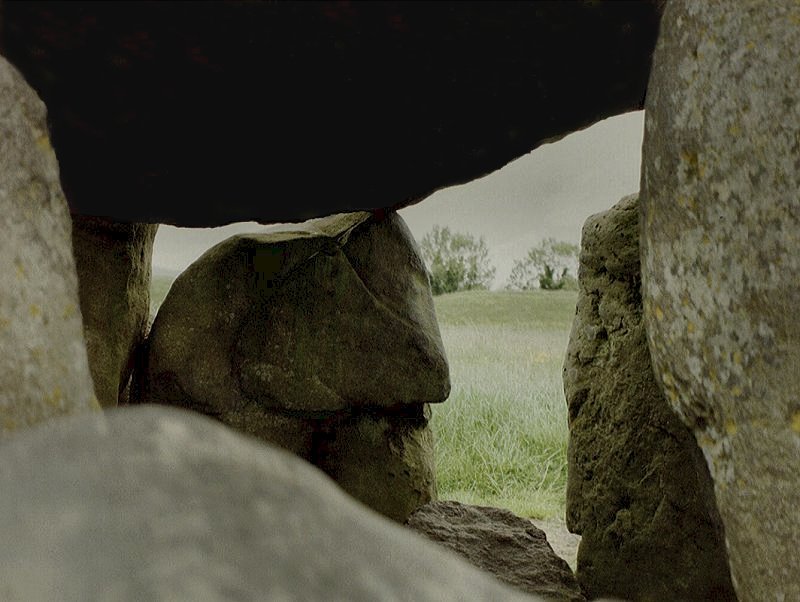
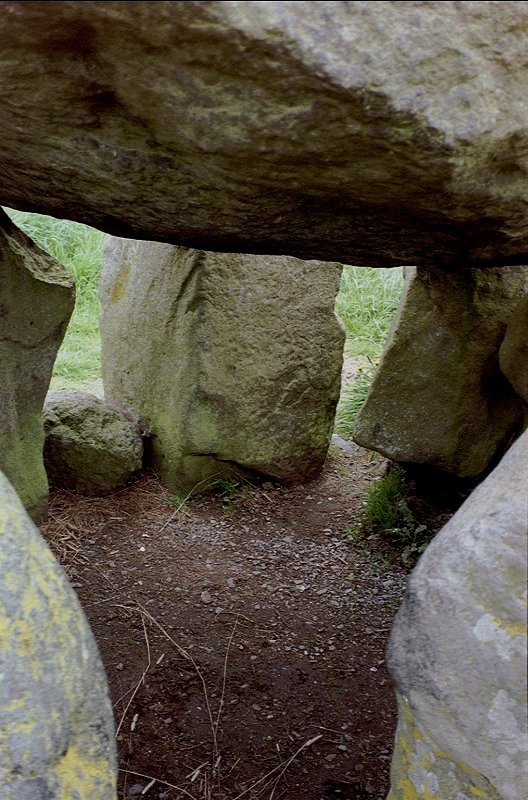
'The Giant's Ring' taken from William McComb's Guide to Belfast, 1861
: engraving by the author.
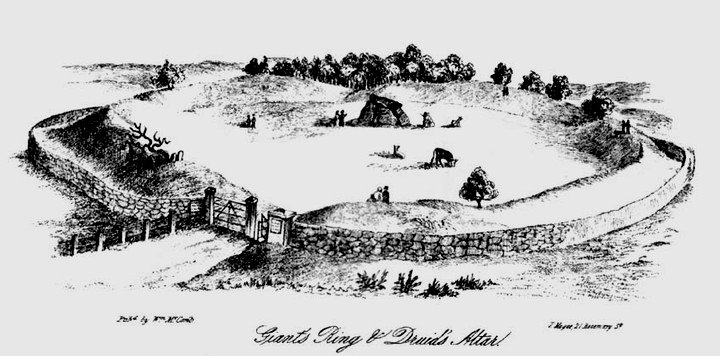
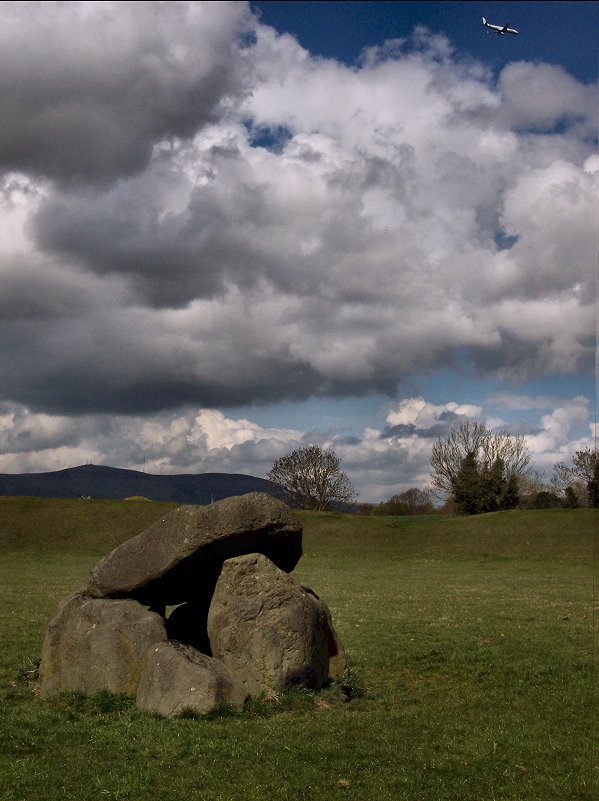
An aerial view from the W, taken by 'Nareik'.
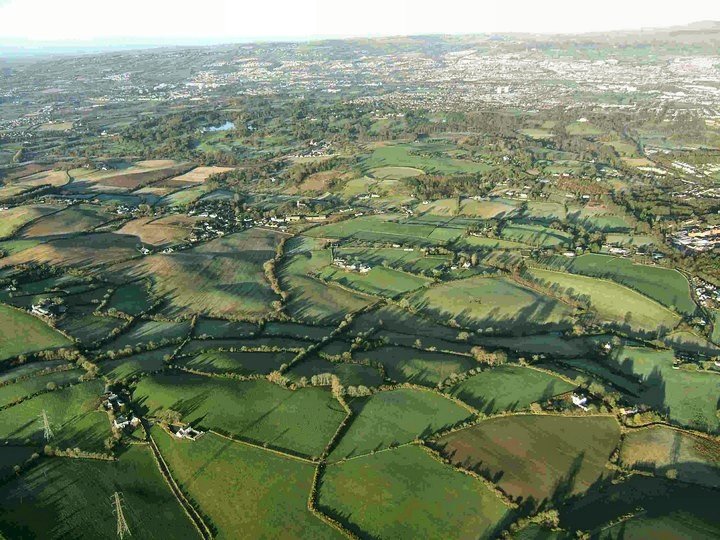
Closer to.
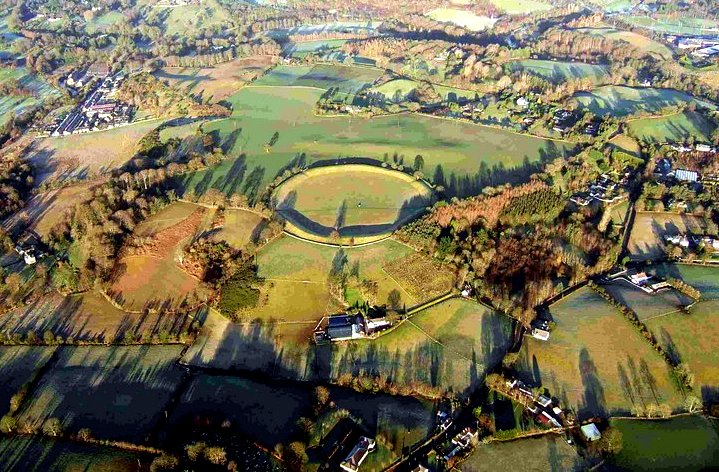
The standing-stone to the E of the henge, here photographed from the E, showing
part of the henge behind..
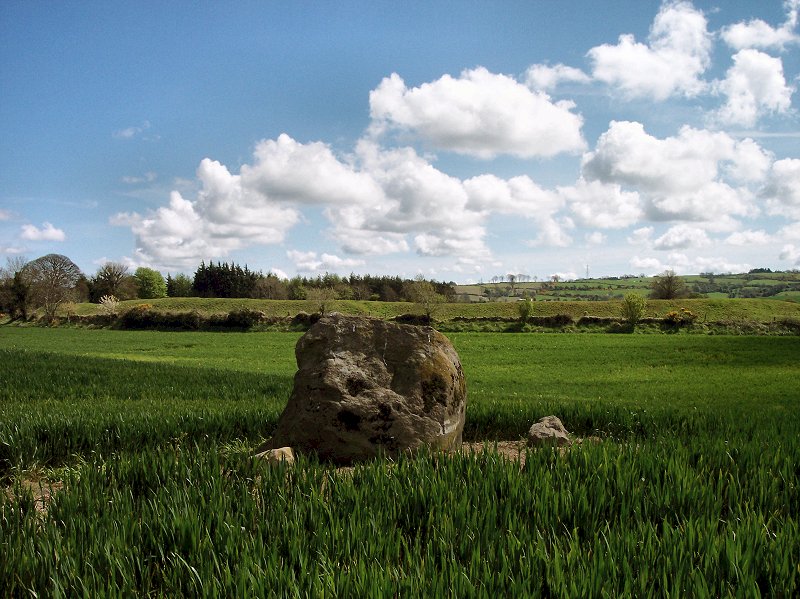
The standing-stone from the W.
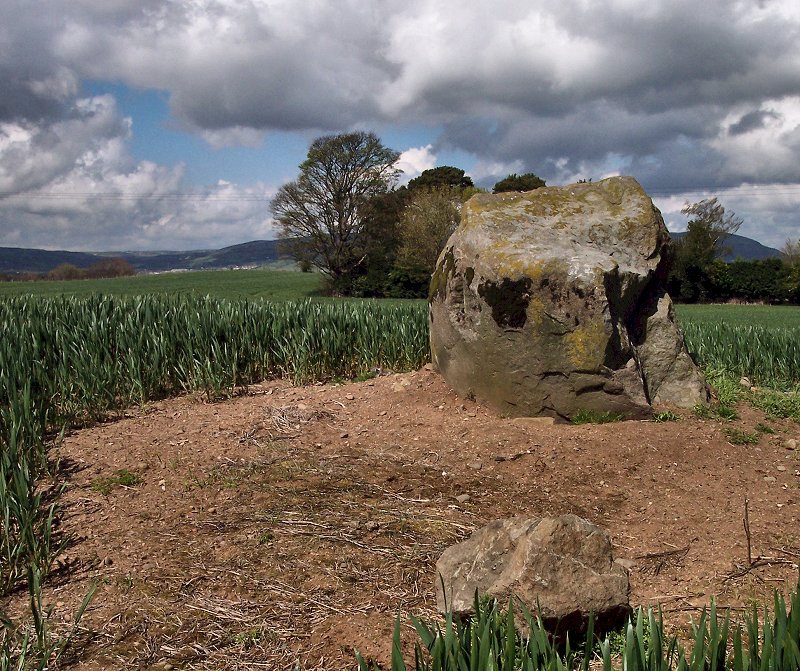
For more pictures of the Giant's Ring see my online slide-show.
|
In the
late 19th century, reminiscences of the various archæological features
which he or his forebears had removed over the previous fifty years were
recorded from nearby farmer David Bodel. These features included a standing
stone, two flat cemeteries, a cemetery mound containing several stone
kists, several scattered kist-burials, a ritual pit containing burnt material,
a mound containing a megalithic tomb and various carved stone artifacts.
Similar sites were found in the adjoining fields of his neighbours, Messrs. Thompson, McKeown and Russell: effectively the whole area of the small plateau which still yields flint artefacts after ploughing. More recently, air photography revealed a line of three small round barrows only 75 metres to the south west, and a site known as Ballynahatty 5 has been excavated, revealing that the plateau can be compared with Stonehenge in the variety and sequence of its monuments, both wood and stone.
This was a Sacred Landscape which acted as a magnet for possibly hundreds of burials and thousands of rites and ceremonies through the Late Neolithic and Early Bronze Ages. |
For an excellent account of the site and the excavations
around the site, see
http://www.lisburn.com/books/historical_society/volume9/volume9_1.html
...and in snow, photographed by Marek Koszorek.
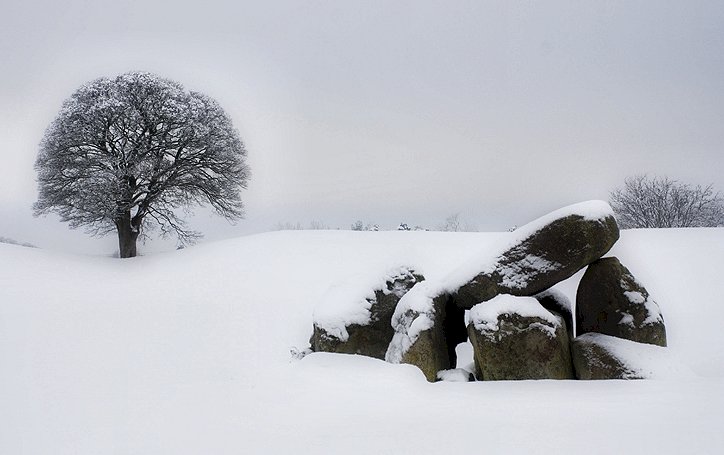
<< BACK<<